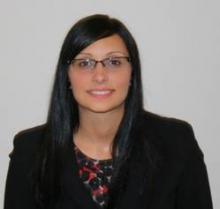MINNEAPOLIS – People with obstructive sleep apnea who have spouses or supportive partners tend to use their continuous positive airway pressure devices for longer periods of time.
That’s according to a study to be presented at the annual meeting of the Associated Professional Sleep Societies on June 2 by researchers at the University of Pittsburgh School of Nursing and at National Jewish Health in Denver.
The findings indicate that patients who live alone or do not have a supportive family might benefit from a group setting during the initial use of the CPAP. New, single users could also be paired off with peer "buddies" who can share experience and offer advice, according to principal investigator Faith Luyster, Ph.D.
Dr. Luyster performed a subanalysis of patients enrolled in a larger randomized, controlled trial conducted by Mark Aloia, Ph.D., associate professor of medicine at National Jewish Health, when he was a resident at Brown University in Providence, R.I. That larger study enrolled patients with obstructive sleep apnea (OSA) to determine whether motivational interviewing or intensive education might increase the use of continuous positive airway pressure (CPAP).
Data were analyzed from 253 patients (100 women and 153 men), just starting CPAP. At the start of the study, 185 were part of a couple and 68 were never married; divorced or separated; or widowed. The quality of the relationship was assessed at baseline using the 12-item General Functioning subscale of the McMaster Family Assessment Device.
Study participants used a four-point Likert scale – rating the 12 statements as "strongly agree", "agree," "disagree," and "strongly disagree" to answer statements that included: "In times of crisis we can turn to each other for support;" "We can express feelings to each other;" and "We confide in each other." A high score is associated with poor relationship quality.
CPAP use was recorded by the device itself.
At 3 months, single patients had average CPAP use of 3.3 hours plus or minus 2.5 hours per night, and coupled patients had 4.3 hours plus or minus 2.6 hours per night (P less than .01). Patients who had a higher relationship quality also had better adherence (P less than .05).
"Ideally, physicians want patients to wear [the CPAP mask] all night," said Dr. Luyster. There are "some data to suggest that wearing it 6 to 7 hours a night can improve cognitive functioning and daytime sleepiness."
Having a supportive partner or family member can help, especially in the beginning of CPAP use. The mask may need to be adjusted, and the user needs to get acclimated to sleeping with a mask. "It’s very helpful for patients to have cheerleaders," who can encourage and assist them, remind them to use the device, and help them to clean the CPAP device daily.
And it helps to have someone who’s accepting of the patient when wearing the CPAP mask. In focus groups, men were very concerned about how they would look to their partners, said Dr. Luyster. Women were more concerned that everyone was sleeping well again.
The authors reported no financial conflicts. The study was funded by the National Heart, Lung and Blood Institute.
On Twitter @aliciaault


